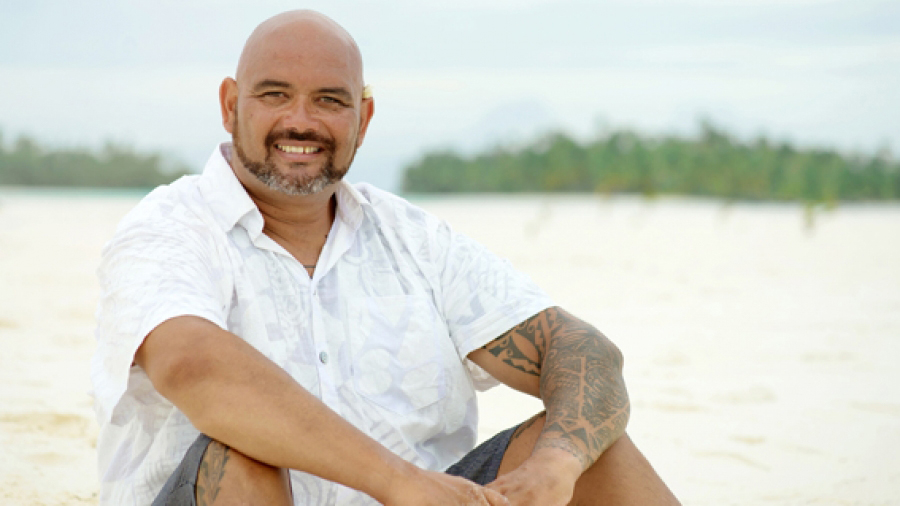Thomas Tarurongo Wynne : We must hold on tight to them as part of our identity
Saturday 10 June 2023 | Written by Thomas Tarurongo Wynne | Published in Editorials, Opinion

Columnist Thomas Tarurongo Wynne. Photo: CI NEWS/16040843
When we as Cook Islanders stand as uriurianga, or as our Aotearoa Maori pepeha, we have so many similar identifiers such as our Maunga, our ava, our Tapere, Ngati or Iwi, our marae, our Vaka and our matakeinanga or Kopu Tangata, writes Thomas Tarurongo Wynne.
Listening over the past three years to Maori and Pakeha recite their pepeha, it’s clear that the two they omit are the two that still hold significance to us as iti tangata in the Cook Islands or Avaiki Nui. They are our Mataiapo and our Ariki.
The Constitutional House of Ariki was established by an act of Parliament, and in the drafting of our Constitution, but we must be clear and acknowledge that Ariki, our Mataiapo and traditional leaders have long existed prior to 1965, and have constituted themselves on each Enua in their own way, and reflecting the needs and designs of their people.
The absence at times of Ariki in the pepeha of our teina in Aotearoa, should compel us to hold tight to them as part of our identity, part of who we are, who we were and who we hope to be in an ever changing world. Because they are the taura that holds us to the past, that ties us to each other, and that reaches into the future.
Nonetheless the House of Ariki is an integral part of our nation’s governance structure, and one of its three pillars. Established under the Cook Islands Constitution Act of 1964, it serves as a consultative body and plays a critical role in the preservation of cultural heritage, Pe’u Maori and custom.
Like any three-legged chair, if we take one leg away it will not stand, and the stability they bring to the legislative pillar of government and the spiritual leadership of our churches, cannot be underestimated, or diminished, or we diminish also.
Having been actively involved in the investitures of Tinomana Munro Ariki, Rongomatane Ariki and Ngamaru Ariki, as well as the investiture of our Te Ava Mataiapo just last year, our traditional leaders are the bastion against change and have held the line for what is left of what preexisted the arrival of Christianity, and a new God and new ways of living, values and ways of seeing ourselves, and our place in that world.
I have learned more about ourselves, and about who I am as a Maori than I have through any books or lectures, by being a part of these aka’uruanga and aka’koroanga of our traditional leaders.
The protocols, karakia, chants, customs and practice give us a glimpse and allows us to activate our Tupuna and all they were in 2023, and why again our traditional leaders and Ariki are essential to not just our past or our present, but also for the future that lives just beyond the horizon for us all.
Of lately, the House of Ariki has met to deliberate on matters such as land tenure, traditional governance, cultural preservation, and social issues affecting their communities, including climate change and depopulation, as well as their own internal discussions of shifting from the ceremonial roles they play to more functional roles in our communities, tribes, matakeinanga and kopu tangata.
They are also faced with an ever-changing world and finding their place in it, and this week, seeing the links between the people of Takitumu both here and in Aotearoa shows where we can build that capacity and find relevance and function by working together for a common goal and for a common good.
Pa Ariki has over time built that relationship – and Aotearoa being the landing place of numerous Vaka that left the Avana passage in Ngatangiia – shows that together nothing is impossible. And that through our Ariki linking with Ngati Kaungunu, the people of Paikea in Mauke or Whangara, Ariki in Aotearoa, Ali’Ii in Samoa or Ariki that we link to in Kuporu (Taha'a) or 'Avaiki (Tahiti Nui), together we are stronger, together we are Maori, Maohi and Maoli, and together we can maintain and sustain our identity, language and customs with our Ariki a critical part of making that happen.














































